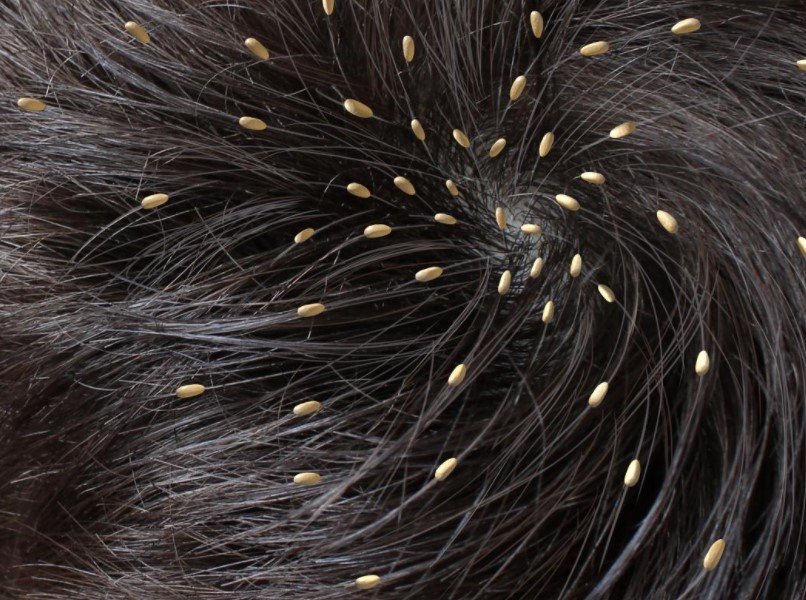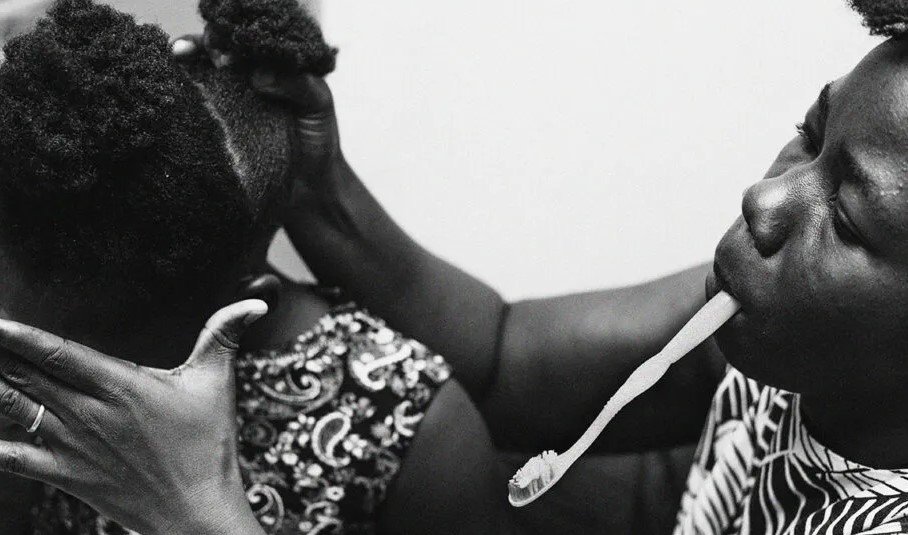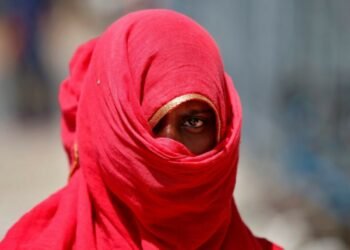As someone with extensive experience in the field of hair care and lice treatment, I understand how sensitive and confusing the topic of lice infestation can be. This article aims to address the common question, “Can Black people get lice?” By debunking myths and providing accurate information, we can help you understand the truth about lice and how it affects people of all ethnicities.
So, can Black people get lice? The answer is yes, Black people can get lice, although it is less common compared to other ethnicities. Lice do not discriminate based on race or hair type; however, the structure of Black hair may make it more difficult for lice to latch onto and move around. In this article, we will explore the misconceptions surrounding lice in Black people, discuss the truth behind lice infestation, and provide tips on identifying, treating, and preventing lice in Black hair. Keep reading to learn more about this important topic and how to protect yourself and your loved ones.
What is Lice?
Lice are tiny, wingless, parasitic insects that feed on human blood. The word “lice” is actually a misspelling of the word “liche.” Lice don’t bite you. They don’t have teeth. They just crawl on your head and suck your blood.

What are Head Lice and How They Spread
Head lice are tiny, wingless insects that infest the human scalp, feeding on human blood. They are highly contagious and can easily spread from person to person, regardless of race or hair type. Lice infestations are most common in children aged 3-11 years old, but anyone can be affected. In this section, we’ll discuss the biology of head lice and how they spread, giving you a better understanding of these pesky parasites.
Lice have six legs with claws at the end, allowing them to grip onto hair shafts tightly. They lay their eggs, called nits, close to the scalp where the temperature is optimal for incubation. Nits are oval-shaped, about the size of a pinhead, and can range in color from yellowish-brown to white. It takes about 7-10 days for a nit to hatch, and another 7-10 days for the nymph to mature into an adult louse. Adult lice can survive up to 30 days on a human host, but will die within 24-48 hours if removed from the scalp.
According to the Centers for Disease Control and Prevention (CDC), there are an estimated 6-12 million cases of head lice infestations in the United States each year. Lice spread primarily through direct head-to-head contact, making it more prevalent among children who often play closely together. However, lice can also spread indirectly through sharing personal items like combs, brushes, hats, headphones, and pillows. It’s important to note that lice cannot jump or fly; they can only crawl, so physical contact or close proximity is necessary for transmission.

Common Misconceptions About Lice and Black People
There are several misconceptions surrounding lice infestations in Black people. Some believe that Black people cannot get lice at all, while others think it’s extremely rare for them to be affected. This section will debunk these myths and provide accurate information about head lice infestations in Black people.
Myth 1: Black People Cannot Get Lice
Contrary to popular belief, Black people can indeed get lice. As mentioned earlier, lice do not discriminate based on race or hair type. However, the structure of Black hair may make it more difficult for lice to latch onto and move around, which could contribute to the lower prevalence of lice infestations in Black people compared to other ethnicities.
Myth 2: Lice Infestations Are Rare in Black People
While it is true that lice infestations are less common in Black people, they are not as rare as some may think. The misconception that lice infestations are extremely rare in Black people may stem from a lack of awareness or understanding about lice and how they spread. It is essential to recognize that anyone, regardless of their race or hair type, can contract lice if they come into close contact with an infested person or their belongings.
Myth 3: Lice Treatments Do Not Work on Black Hair
This misconception may arise from the belief that lice treatments are designed specifically for Caucasian hair types and are therefore not suitable for Black hair. In reality, lice treatments can be effective on Black hair. The key is to ensure proper application and follow-up care, as well as selecting a treatment that is appropriate for the individual’s hair type and condition.
It is crucial to debunk these misconceptions about lice and Black people in order to raise awareness and promote accurate information. Lice infestations can affect anyone, regardless of race or hair type, and it is essential to take appropriate measures to prevent, identify, and treat lice infestations when they occur.
The Truth Behind Lice Infestation in Black People
While it is less common for Black people to experience lice infestations compared to other ethnicities, it is essential to understand the factors that contribute to this difference and how lice infestations can still occur in Black people. In this section, we will delve deeper into the truth behind lice infestation in Black people by examining the unique characteristics of Black hair, the role of hair care practices, and the importance of proper detection and treatment.
Unique Characteristics of Black Hair
Black hair has a distinct structure that can make it more challenging for lice to infest. The hair shafts are often more tightly coiled, making it difficult for lice to crawl from one hair strand to another. This can lead to a lower likelihood of lice infestations in Black people. However, it is crucial to remember that this does not mean Black people are immune to lice infestations – it merely means they may be less prone to them.
Hair Care Practices
Hair care practices can also play a role in the prevalence of lice infestations in Black people. Some Black individuals use hair products like oils and grease, which may create an environment that is less favorable for lice to thrive. Hair care routines such as braiding or weaving can make it more difficult for lice to move around the scalp and lay their eggs.
Detection and Treatment
Detecting and treating lice infestations in Black people can be more challenging due to the hair’s texture and density. Therefore, it is important to carefully inspect the hair and scalp for signs of lice and nits using a fine-toothed comb or a specialized lice comb. Once detected, treatment options like over-the-counter lice shampoos, prescription medications, or manual nit removal can be effective in eliminating lice infestations in Black hair.
While Black people may be less likely to experience lice infestations, it is still possible for them to be affected. Understanding the unique factors that contribute to this difference and ensuring proper detection and treatment is crucial in addressing lice infestations in Black people.
How to Identify and Treat Lice in Black Hair
Identifying and treating lice in Black hair can be challenging due to the unique characteristics of Black hair, such as its texture and density. However, with the right approach and treatment options, it is possible to effectively address lice infestations in Black hair. In this section, we will discuss how to identify lice in Black hair and explore various treatment options to eliminate lice infestations.
Identification of Lice in Black Hair
- Visual inspection: Carefully examine the hair and scalp for signs of lice and nits. Nits are often found close to the scalp and can be confused with dandruff or hair product residue. Use a bright light and magnifying glass if necessary.
- Fine-toothed comb: Use a fine-toothed comb or a specialized lice comb to comb through small sections of the hair, starting at the scalp and moving towards the ends of the hair. This process can help dislodge lice and nits, making them easier to spot.
- Wet combing: Wet the hair and apply conditioner, then comb through with a fine-toothed comb. This technique can make it easier to detect and remove lice and nits from the hair.
Treatment Options for Lice in Black Hair
- Over-the-counter lice shampoos: These shampoos contain active ingredients like pyrethrin or permethrin, which can kill lice and nits. Follow the instructions on the product label, taking care to fully saturate the hair and scalp.
- Prescription medications: If over-the-counter treatments are not effective, consult a healthcare professional for prescription-strength lice treatments, such as ivermectin or malathion.
- Manual nit removal: Manually remove nits from the hair using a fine-toothed comb or specialized lice comb. This process can be time-consuming but is an essential step in ensuring that all nits are removed to prevent reinfestation.
- Home remedies: Some people opt for home remedies, such as smothering the hair with oil, mayonnaise, or petroleum jelly, followed by combing out the lice and nits. While these methods may provide some relief, their effectiveness is not well-established, and professional treatments are recommended.
In addition to these treatment options, it is essential to wash or dry-clean infested clothing, bedding, and personal items, and vacuum the home thoroughly to remove any stray lice or nits. By taking appropriate measures to identify and treat lice in Black hair, you can effectively address and eliminate lice infestations.
Preventing Lice Infestations in the Future
Preventing lice infestations in the future is essential in maintaining a lice-free environment for yourself and your loved ones. By adopting certain habits and being mindful of potential risk factors, you can reduce the likelihood of experiencing lice infestations in the future. In this section, we will discuss some practical steps you can take to prevent lice infestations.
- Avoid head-to-head contact: As lice primarily spread through direct head-to-head contact, it is crucial to limit close physical contact with others, especially those who may have lice.
- Do not share personal items: Avoid sharing items like combs, brushes, hats, headphones, and pillows that could potentially harbor lice or nits.
- Regularly check for lice: Perform routine checks on yourself and your family members, particularly if there has been a recent lice outbreak at school or among friends.
- Educate children about lice: Teach your children about lice and how they spread, encouraging them to be cautious about sharing personal items and engaging in activities that could lead to head-to-head contact.
- Maintain a clean environment: Keep your home, clothing, and personal belongings clean by washing or vacuuming regularly, as this can help to eliminate stray lice or nits that may cause reinfestation.
By implementing these preventive measures, you can significantly reduce the risk of lice infestations in the future and maintain a healthier, lice-free environment.
Conclusion
In conclusion, lice infestations can affect anyone, including Black people, although it is less common due to the unique characteristics of Black hair. The key to addressing lice infestations lies in understanding how lice spread, debunking misconceptions, and taking appropriate measures to prevent, identify, and treat lice when they occur. By staying informed and vigilant, you can protect yourself and your loved ones from these pesky parasites and maintain a healthy, lice-free environment.
Remember, knowledge is power, and by learning about lice and how they affect different populations, you can make informed decisions and take the necessary steps to ensure that you and your family remain lice-free. Keep smiling, and stay proactive in your approach to preventing and treating lice infestations.




















